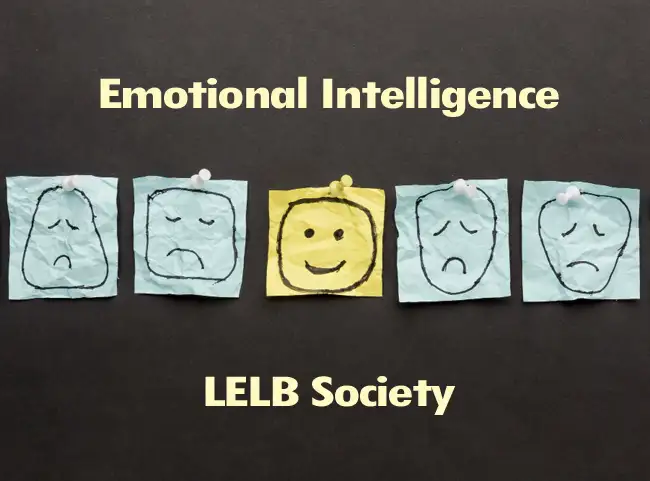IELTS Listening Practice Emotional Intelligence IELTS Listening Practice Emotional Intelligence About this activity This activity is labeled round table by Dr. Hariri, the creator and administrator of LELB Society. This activity is on the premise of Flipped Learning, according to which the students watch a video before the class, carry out research into the selected theme, and prepare themselves for an informed discussion in the class. This activity is on the basis of both synchronous and asynchronous computer-mediated communication (CMC), according to which the students are also encouraged to be active even before the class. In this flipped classroom activity, the students are encouraged to utilize the comment form at the bottom of the post to to exchange their questions, findings, and experiences with each ...
Home » Listening Practice in English » IELTS Listening Practice Emotional Intelligence

IELTS Listening Practice Emotional Intelligence
Updated: by Dr. Mohammad Hossein Hariri Asl
Time to Read: 5 minutes | 733 Views | 27 Comments on IELTS Listening Practice Emotional Intelligence
Share This Post
About the Author
Dr. Mohammad Hossein Hariri Asl is an English and Persian instructor, educator, researcher, inventor, published author, blogger, SEO expert, website developer, entrepreneur, and the creator of LELB Society. He's got a PhD in TEFL (Teaching English as a Foreign Language).
Number of Posts: 4242



11. What does it refer to “prefrontal lobe”?
12. What does it refer to “prefrontal lobe”?
Thank you for editing the number that you are supposed to put before your questions.
The prefrontal lobe, located at the front of the brain, is crucial for higher-level cognitive functions. It plays a key role in decision-making, problem-solving, and planning. It also regulates social behavior, personality expression, and moderates emotional responses. Essentially, the prefrontal lobe helps us navigate complex social interactions, anticipate consequences of our actions, and control impulses, making it integral to our everyday functioning and self-control.
11. What things do help us to manage our emotion and pay attention?
Corrections:
If you want to place emphasis on “help”, the sentence is grammatically correct. However, the sentence should simply read: What things help / can help us … In other words, you don’t need any modal auxiliary verb here unless you want to emphasize something. For more information, refer to my reply to Question 3.
Emotion should be pluralized here to refer to a variety of emotions.
10- What does it take to be emotionally intelligent ?
Hi and welcome to this academic activity.
Corrections:
The question mark is attached to the last word.
9- Does emotional intelligence look different in different places?
Yes, emotional intelligence can manifest differently across various cultures and environments. Cultural norms and values influence how emotions are expressed, understood, and managed. For instance, in some cultures, openly expressing emotions may be encouraged, while in others, it might be seen as inappropriate. Similarly, the importance of certain emotional skills, like empathy or self-regulation, may vary depending on social expectations and cultural contexts. Understanding these differences is key to effectively navigating cross-cultural interactions and developing global emotional intelligence.
8. Do women leaderships contradict the belief that men and women are different in terms of emotional intelligence?
Women in leadership roles do not contradict the belief that men and women have different aspects of emotional intelligence. Rather, it showcases how both genders can effectively harness and apply their unique emotional intelligence strengths in leadership. While research suggests that men and women may excel in different areas of emotional intelligence—such as women often being more empathetic and men potentially having different approaches to managing emotions—effective leadership requires a combination of these skills.
7. How does neuroplasticity make a great contribution to the development of emotional intelligence in children?
6. What is compared to a moral compass?
5. What are the 4 pillars of emotional intelligence?
4. Will our emotional intelligence develop over time?
Yes, emotional intelligence can develop and improve over time through self-awareness, practice, and experience. Engaging in activities that challenge your emotional skills, seeking feedback, and reflecting on your interactions can all contribute to enhancing your emotional intelligence. Just like any other skill, with consistent effort and a willingness to learn, you can grow and refine your ability to understand and manage emotions effectively.
3. Which country does the highest emotional intelligence have?
Corrections:
Which country has the highest level of emotional intelligence?
hi
excuse me
this sentence is simple present and is not present perfect so i thick helping verb should be dose no has because has is main verb
and also appearance question is simple present so we should use dose and no has
✅ Thank you for raising this question and looking at this grammatical point critically.
This interrogative sentence starts with a WH-question element, which is “which country” here, and “country” plays the role of the “subject” and not the “object” of the sentence. For this reason, you should not use any modal auxiliary verb. Consider the following examples:
Which country does your passport include? (country as the object of the sentence, so you should use a modal auxiliary verb – the principal verb is “have”)
Which country has the highest level of EQ? (country as the subject of the sentence. So, no modal auxiliary is needed – the principal verb is “have”.)
Another example:
How many people died in the accident? (people as the subject of the sentence, no modal auxiliary)
How many people did you see in the accident? (people as the object of the sentence, modal auxiliary verb is required)
Have more questions, please use our comment forms anytime.
Are the two sentence is right? 1. Which boy has a football? 2. Which boys have a football?
Grammatically correct, but semantically weird.
2.What are the differences between emotional intelligence of women and men?
It’s better to say:
… emotional intelligence in women and men
1. What is the meaning of emotional intelligence?
Emotional intelligence is the ability to understand and manage your own emotions, as well as recognize and influence the emotions of others. It involves skills such as emotional awareness, empathy, self-regulation, and social skills. People with high emotional intelligence can navigate social complexities, communicate effectively, handle conflicts, and build strong relationships. This capability is essential not only for personal well-being but also for professional success, as it enables better collaboration, leadership, and decision-making in various environments.